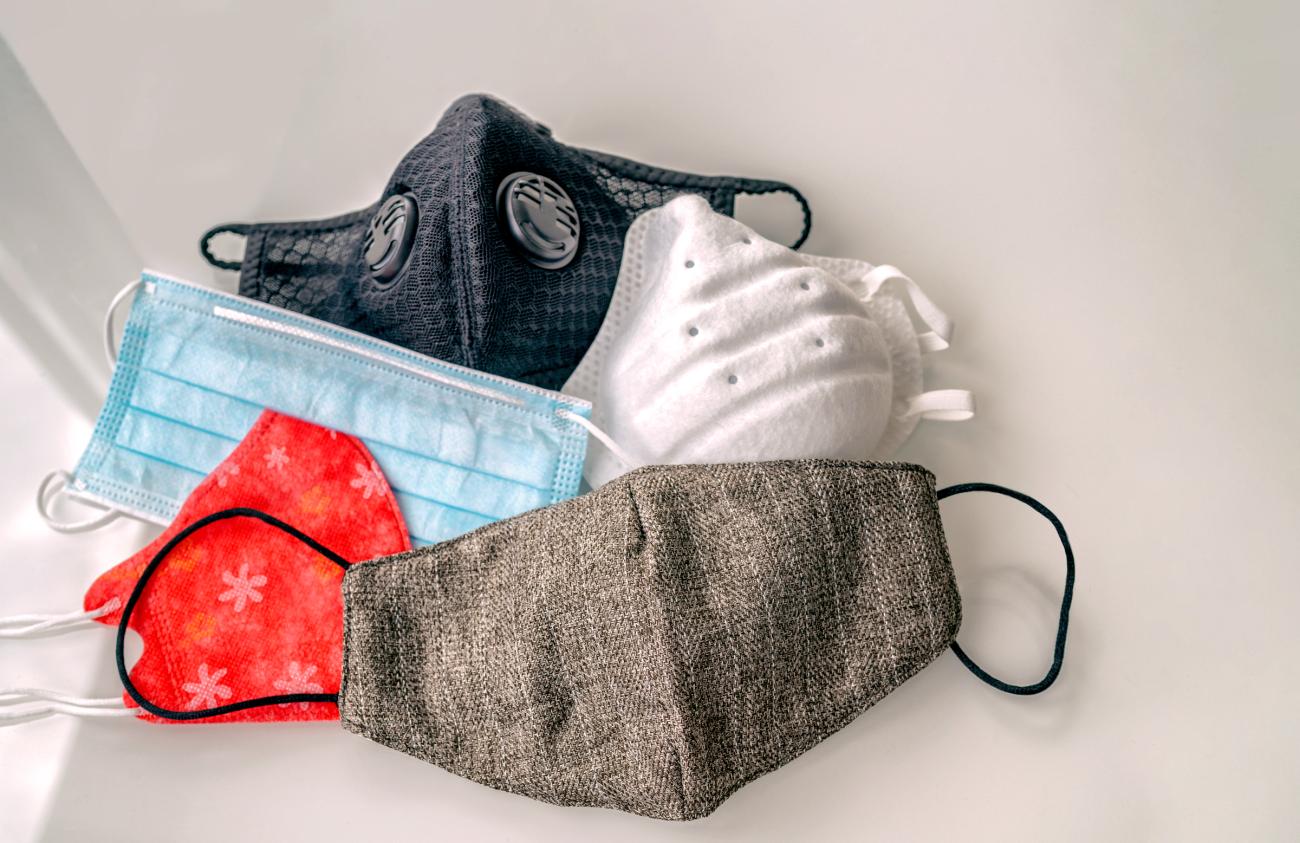
With new variants on the rise, our expert shares science-based mask dos and don’ts.
Face coverings have become a ubiquitous part of pandemic life, and for good reason. The barrier they place between us has kept influenza rates low in Canada and helps reduce the transmission of COVID-19. With new, extra-virulent COVID-19 variants in circulation, Vancouver Coastal Health Research Institute expert Dr. Horacio Bach fills us in on the science of how to use masks properly to protect ourselves and others.
Q: How do masks help stop the spread of infection and how effective are they?
A: While any mask may protect us from droplets to some extent, some masks are more protective than others. In particular, polyester masks have spaces between their fibres that allow droplets of saliva to enter and escape, making them less effective than thick, cotton masks that have tightly woven fibres.
In my recent research study, we dissected four respirators and one surgical mask, and found that most had either three or four layers. The layer closest to your mouth is absorbent—it collects such things as sweat and saliva. The next one or two layers are the filters that trap particles, including viruses, using materials such as treated polypropylene. The final layer may be fluid-resistant or another type of fabric. We exposed these layers to SARS-CoV-2 delta variant and then forced a vortex of air through them to test how many viral particles were released. Our research confirmed that the surgical mask and N95 masks we tested in the study are indeed effective at reducing the viral particles that pass through their layers by up to 95 per cent, and can therefore help reduce transmission and infection rates. However, there are masks on the market that may not be as effective as these and they could be falsely labelled.
It is always good to check that the mask is certified by a reputable organization, such as the US National Institute of Occupational Safety and Health. The Centers for Disease Control and Prevention (CDC) and US Food and Drug Administration websites each have listings of approved masks/respirators/suppliers.
Q: I usually wear a cloth mask. Is this enough protection or should I instead wear an N95 or disposable mask?
A: Since the omicron variant is much more virulent than previous variants, I personally double up my masks for added protection, and wear both a cloth and surgical mask. When choosing from cloth masks, I recommend selecting either cotton or linen fabrics because they tend to have stronger, more packed fibres.
People with diabetes, immunosuppression, cancer, heart problems or breathing problems, for example, may want to consider wearing an N95 mask or something similar for added protection.
Q: How should I wear a mask to maximize its effectiveness?
A: The fit of your mask will largely determine how effective it is at protecting you and others from COVID-19. If there are a lot of gaps around the edges of your mask, it will allow particles to enter and escape. The mask should fully cover your nose and mouth, and fit under your chin. It should be placed under any glasses so that it sits directly against your skin.
Many masks have a flexible piece of metal that can be bent to contour it to the nose, which helps to limit gaps. Doubling up your masks can also help remove gaps. Never wear masks that have any damage such as punctures, holes or cuts.
Q: How should I clean my mask and how often?
A: The CDC website has some helpful guides and images on how to wear and clean your mask. For cloth masks, they recommend washing it at least once per day or whenever the mask becomes dirty. You should also wash your hands before and after touching a mask. Only handle masks you want to reuse by their strings, or ear loops, to keep them clean. Disposable masks should be thrown away after every use.
Cotton or linen masks can be washed for reuse, but avoid putting them in a washing machine. The battering effects of its drum rotation might deteriorate the fabric. As such, it is preferable to soak masks overnight in soap and then wash them by hand.
Q: Is it safe for me to wear a mask while I exercise?
A: Our heart rate and the demands on our muscles and circulatory system increase when we exercise, which pushes up the body’s need for oxygenated blood. We also breathe heavier to supply our body with enough oxygen. Research has shown that we can require around nine times more oxygen when exercising. When wearing a mask, make sure to stay within your comfort zone and decrease your exertion if you start to feel dizzy, lightheaded or short of breath. You may want to talk with your doctor to make sure that exercising with a mask is safe for you. Another option is to wear a face shield when exercising outside.



